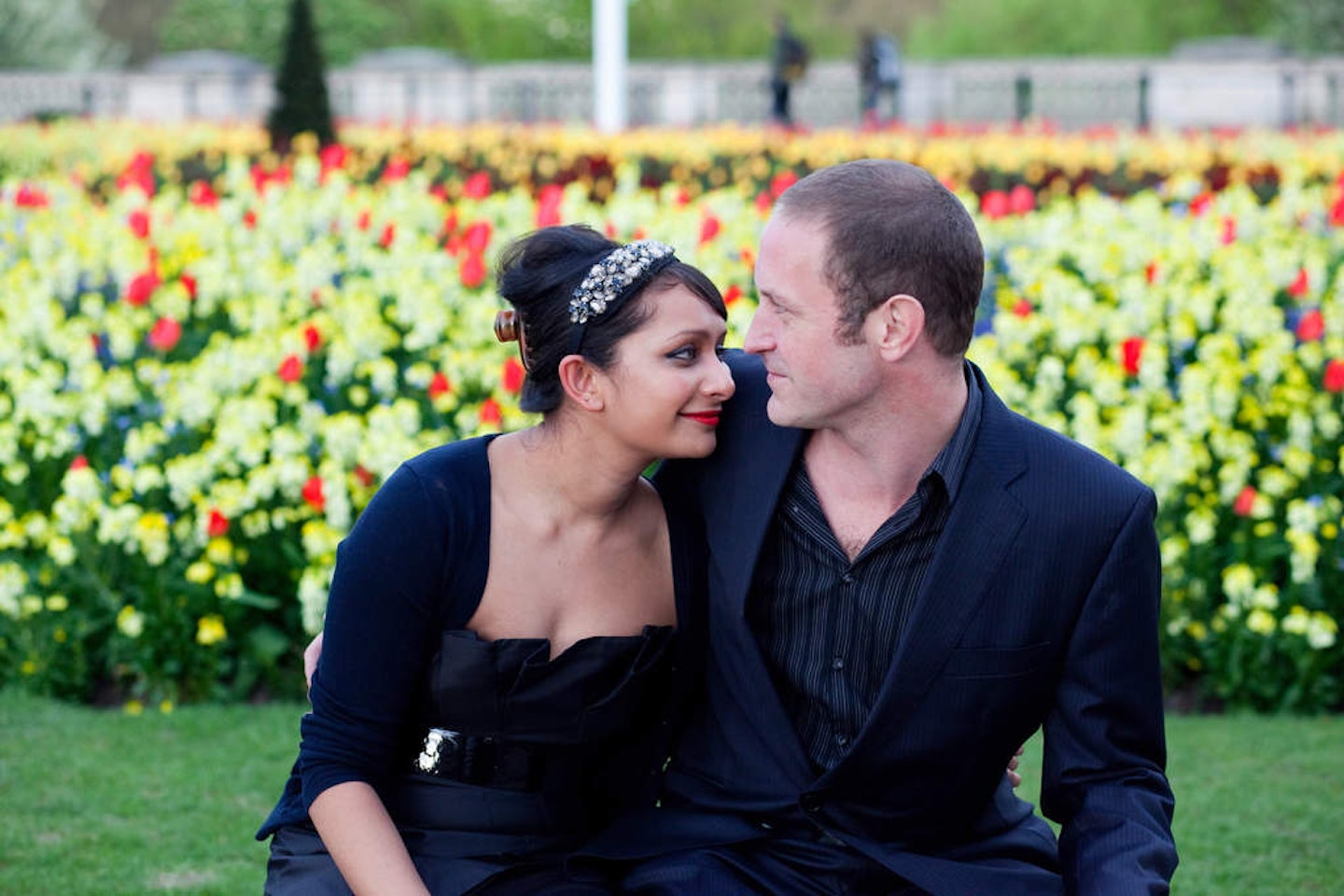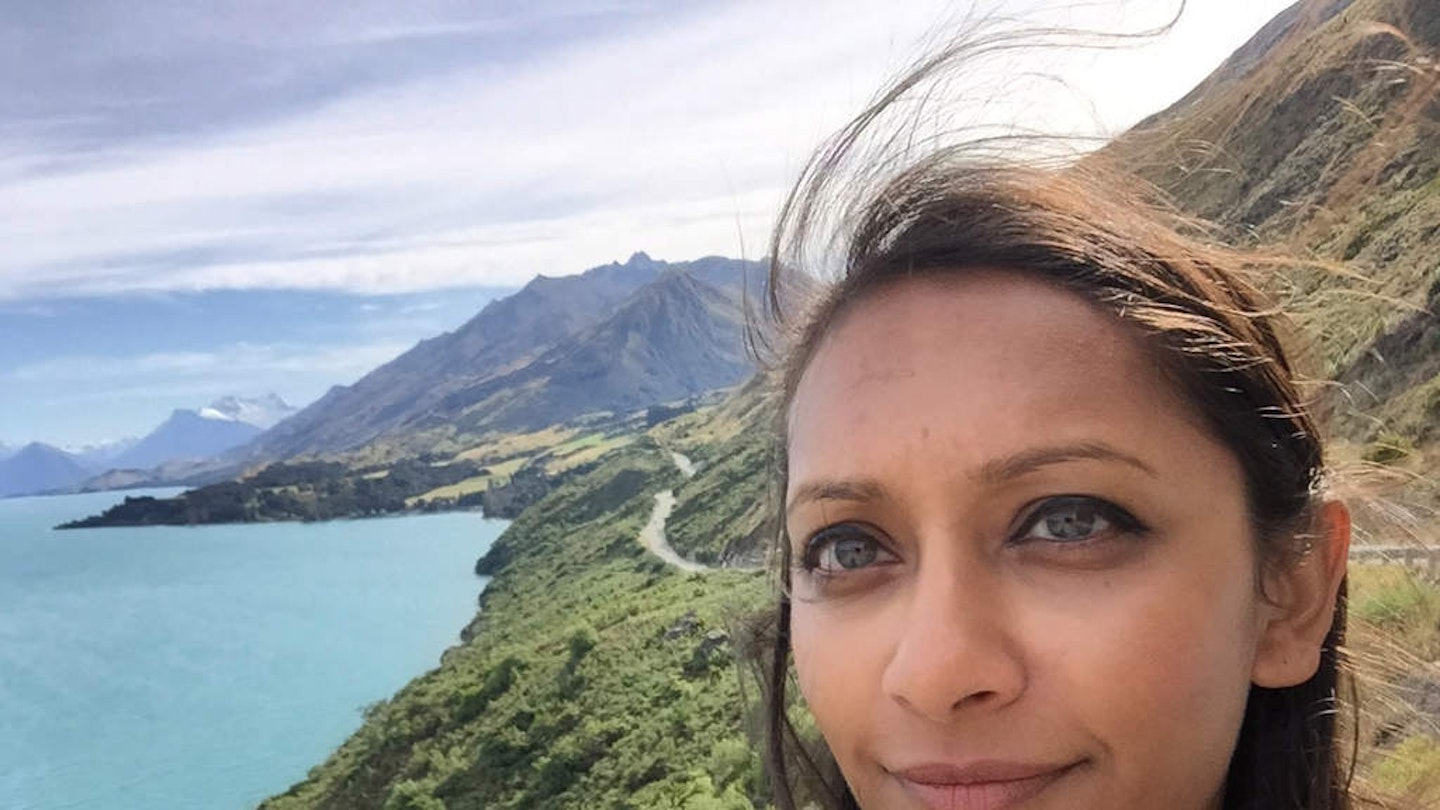It was October 2013. I was on a train going home, a few days after my life with my beautiful husband had shattered. Rob, a journalist, had just told me he’d been harbouring a secret heroin addiction for three years. I knew he hadn’t been well, but I didn’t connect the dots because he also had chronic depression, and a lot of the symptoms overlap.
In-between berating myself for how naive and stupid I was, I remember a moment of clarity, where I thought: ‘Hang on, but what did I ever learn, growing up, to prepare me for this?’ And next, in common with anyone who has had their world tossed about by a hurricane of trauma: ‘What the hell do I do now?’
This would be a question I’d ask myself again two years later. If Rob confessing he was a drug addict was the earthquake, I experienced the nuclear explosion when, overwhelmed by his mental-health problems, he took his own life while visiting family in New Zealand.
When I think about when we first met – him with a broad and easy smile, me cautious because it was a blind date – it seems impossible that our story ended here. As far as I was concerned, I had done everything right. I met an amazing, intelligent and kind man who loved me immensely. We had a dog, got married, and were planning to have kids.
What I realised is that nothing in my existence up to this point had prepared me for how to deal with life when it got this hard. We learn about the chemical composition of water, Jane Austen and the Tudors. Where is the lesson that tells you life isn’t black and white, but 100% grey?
I’m not saying there’s anything that can necessarily prepare you for finding out your husband is a heroin addict, or losing him and seeing your future petering off into a blank void. But there is something to be said for acknowledging how complicated life really is. That the Great Heterosexual Dream of settling down and having kids does not future-proof you from being desperately sad or feeling alone.
When the mist cleared a little around my grief, I realised I faced a choice. I could cling to my old life and watch as my sadness destroyed me, or I could acknowledge that I was a different person and rebuild a more truthful existence. I come from a family of strong, resilient women. Knowing that gave me the strength to claw my way out.
It wasn’t enough to say ‘I am strong’, though. When you’re rebuilding your life, or even if you’re saying ‘I want to be a better, different person’, what you have to do first is acknowledge what went wrong.

In my case, I had to acknowledge that I had been judgemental about addiction. I had no idea of the scale of the problem – almost every one of us is touched by addiction in some way. I thought it symbolised weakness, rather than – as it is for a lot of people – a case of self-medicating to deal with things so huge the average person would be decimated by them.
I tried to help Rob with his recovery and provide him a stable, loving environment in which to get well, but we also lied to all of our family and friends about it because we were afraid of their judgement. I never asked myself what I was taking on, and the impact it would have on me to lie to my loved ones. Partly because I was doing it for love.
Whether it was a good day or a bad day, we couldn’t stand to see each other upset – it was like a physical pain – and we shared a sense of humour, the same passion for reading and cooking. But I also allowed love to blind me to the bigger picture. I didn’t push Rob regarding some of the more unexplainable parts of his behaviour – like where all his money was going, or trips to the corner shop in the middle of the night (all of it related to drugs).
I was so obsessed with having a picture-perfect life; I didn’t want to acknowledge anything that didn’t fit with that. What I’ve realised, from the hundreds of letters people have emailed me since I wrote a memoir about our life, is that every single person is going through their own struggle. In some way, they feel caught between the life they need to show they are living, versus how they actually feel.
I had to be honest about life with Rob: what was I angry about, what did I regret and what could I do going forward? My biggest regret was that we made decisions based on other people’s opinions, rather than what was right for us.
After Rob died, I vowed that I was never going to do that again. It doesn’t mean that I don’t value the opinions of my loved ones, but if I’m going through a hard time, I have to make my own choices. My own mental well-being is a big part of that, which means drinking less, going for runs and not committing to too many social engagements. Some of my friends think I’m boring, but I’ve long stopped caring – they don’t have to live with the contents of my mind.
I also made difficult choices about things I had always wanted to do. Risk is scary because it places you outside of your comfort zone, but it’s a better feeling than regret. It’s the reason why I decided to quit my job as a senior journalist at HuffPost UK to embark on an eight-month journey around the world.
I’m not saying everyone needs to go through trauma to discard the bits of their life that aren’t working. But I do know that image we have of the perfect life needs to be taken down and placed in the attic. It puts us under so much pressure, and we make ourselves sick striving towards it, when it’s not real. I had to learn this the hard way, but the lesson is simple: you have one life to figure out what’s important to you. And other people’s opinions should be the very least of it.
‘Chase The Rainbow’ by Poorna Bell is published on 3 May (£8.99, Simon & Schuster)
